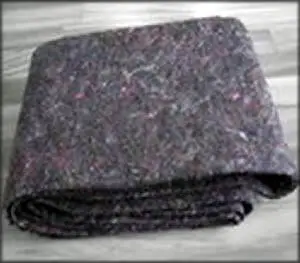Describing inferior goods or workmanship, or disrespectful behaviour.
Shoddy
What's the meaning of the word 'Shoddy'?
What's the origin of the word 'Shoddy'?
This site is about the meanings and origins of phrases, so I don’t often include pieces about single words, but ‘shoddy’ is interesting so I’ll make an exception.
Here in Yorkshire, Victorian factories with signage declaring them to be ‘shoddy manufacturers’ aren’t uncommon. These signs look rather odd – why would anyone draw attention to the poor quality of their work?
It isn’t the case that these factories produced inferior goods. They were erected before the middle of the 19th century, before ‘shoddy’ took on its ‘second-rate’ meaning. At that time the word ‘shoddy’ was only used as the name of a type of woollen yarn produced by tearing old woollen rags into shreds and weaving the strands, sometimes with the addition of some new wool, to make a cloth, also known as shoddy.
The manufacturing process was by no means shoddy; in fact these days the businesses would be applauded as models of recycling and, back in the reign of Victoria, they had a reputation for the production of quality woollen cloth. The social reformer Henry Mayhew, in London labour and the London poor, 1851, even made a distinction between the genuine woollen shoddy of the north and the ersatz southern copy made from waste cotton:
To this stuff [cotton rags ground up] the name of ‘shoddy’ is given, but the real and orthodox ‘shoddy’ is a production of the woollen districts.
It was in the latter half of the 19th century that ‘shoddy’ began to move from the top to the bottom in our estimation.
Shoddy’s Achilles’ heel was that, as its raw material was effectively free, it was cheaper than cloth newly made from the fleeces of sheep. Some unscrupulous cloth manufacturers began adding shoddy to the weave of their woollen cloth to bulk it up.
In my youth we didn’t have Playstations, we had Plasticine, and those of a certain age who played with that modelling clay will remember how mixing the rainbow colours of the original would result in a greyish purple lump. That’s the colour of shoddy. Although well made and perfectly suitable for blankets, padding etc., it wasn’t what a gentleman dandy of the day would have wanted his new suit made from.
This grumble, from the Yorkshire Post and Leeds Intelligencer, December 1872, illustrates what was going on:
It is gratifying to find that all-wool goods hold their own, though large quantities of shoddy goods and unions are produced in order to get the same appearance as first-class manufactures, at a lower price.
It was around that time that various examples of ‘shoddy’, with the meaning of ‘inferior’, began appearing in the British press. They often alluded to the passing off of shoddy as newly woven wool. For example:
J. R. Lowell’s The Biglow Papers, 1862 – ‘You think thet’s ellerkence [elegance], – I call it shoddy, A thing,’ sez I, ‘wun’t cover soul nor body; I like the plain all-wool o’ common-sense.’
Leslie Stephen’s Essays on Freethinking and Plainspeaking, 1873 – He calmly retailed his lengths of theological shoddy, – old fragments of decaying systems woven into a web of the usual polish and flimsiness.
‘Shoddy’ soon joined ‘sleazy’, ‘seedy’, ‘shabby’, ‘shonky’, ‘second-rate’, ‘scruffy’ and ‘slipshod’ as general terms meaning ‘cheap and nasty’ (that’s just the S’s – English has an alphabet-full of terms of abuse). In the USA ‘shoddy’ began to be used as the name of a person who used wealth as a means of establishing social status.
The shoddy manufacturers in the north of England were loathe to take up the ‘second-rate’ meaning and northern newspapers continued to proudly offer ‘shoddy goods’ for sale throughout the late 1800s. Eventually though they had to give up the battle as ‘shoddy’ became firmly established as a term of disparagement.
As to why the first people to make shoddy decided to call it shoddy, we aren’t entirely sure. The best bet is that it was a corruption of ‘shode’, which was a name used in Northumberland for fragments of tin and lead ore which lay around on the surface. These days, although the shoddy trade still exists, it is more likely to be sold as ‘mungo’, which is the name of a similar product. The word ‘mungo’ has a history of its own, but that’s another story.
The history of “Shoddy” in printed materials
Trend of shoddy in printed material over time
Related phrases and meanings
Browse more Phrases
About the Author

Phrases & Meanings
A-Z
A B C D E F G H I J K L M N O P Q R S T UV W XYZ
Categories
American Animals Australian Bible Body Colour Conflict Death Devil Dogs Emotions Euphemism Family Fashion Food French Horses ‘Jack’ Luck Money Military Music Names Nature Nautical Numbers Politics Religion Shakespeare Stupidity Entertainment Weather Women Work
How did we do?
Have you spotted something that needs updated on this page? We review all feedback we receive to ensure that we provide the most accurate and up to date information on phrases.
